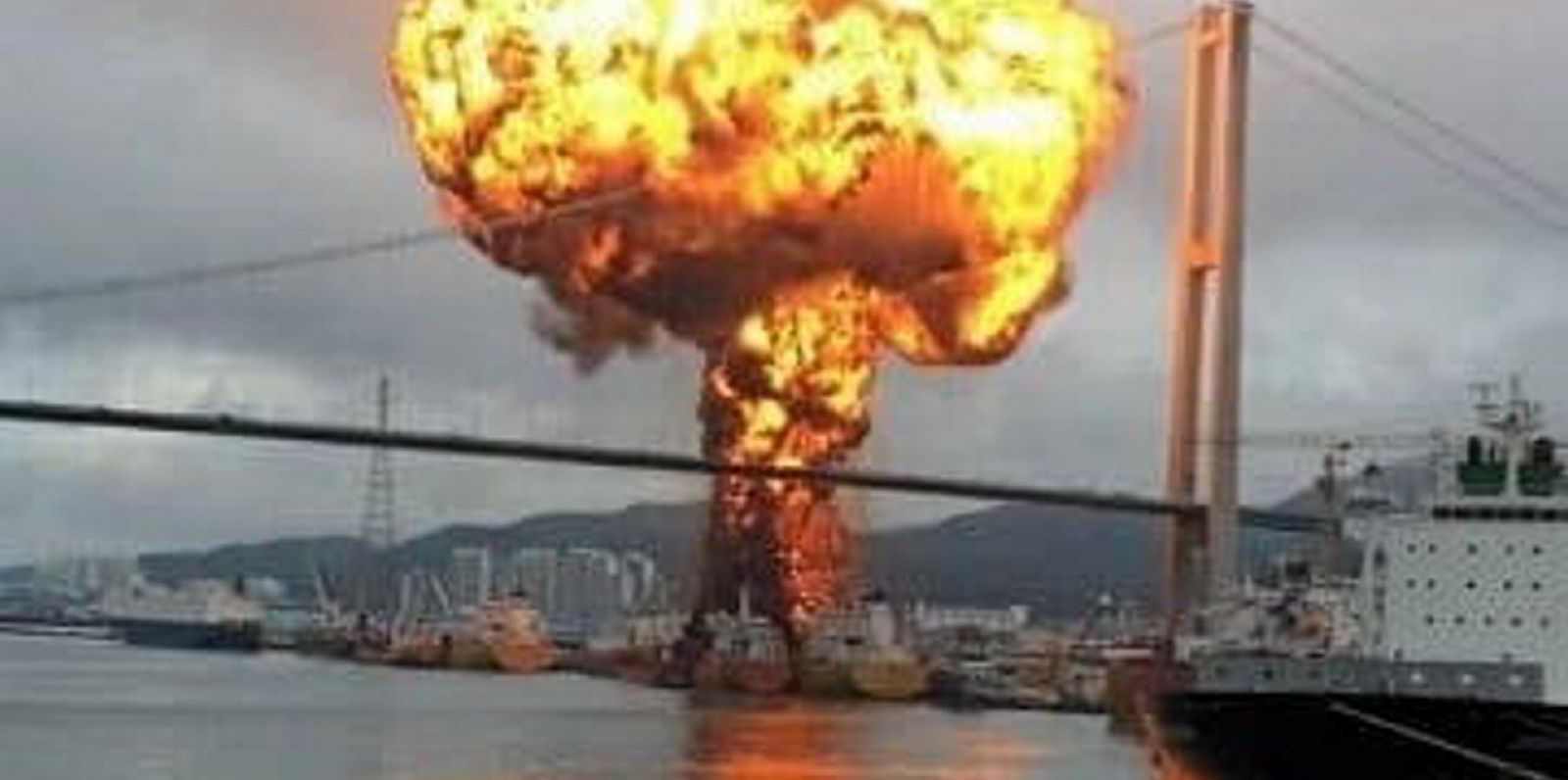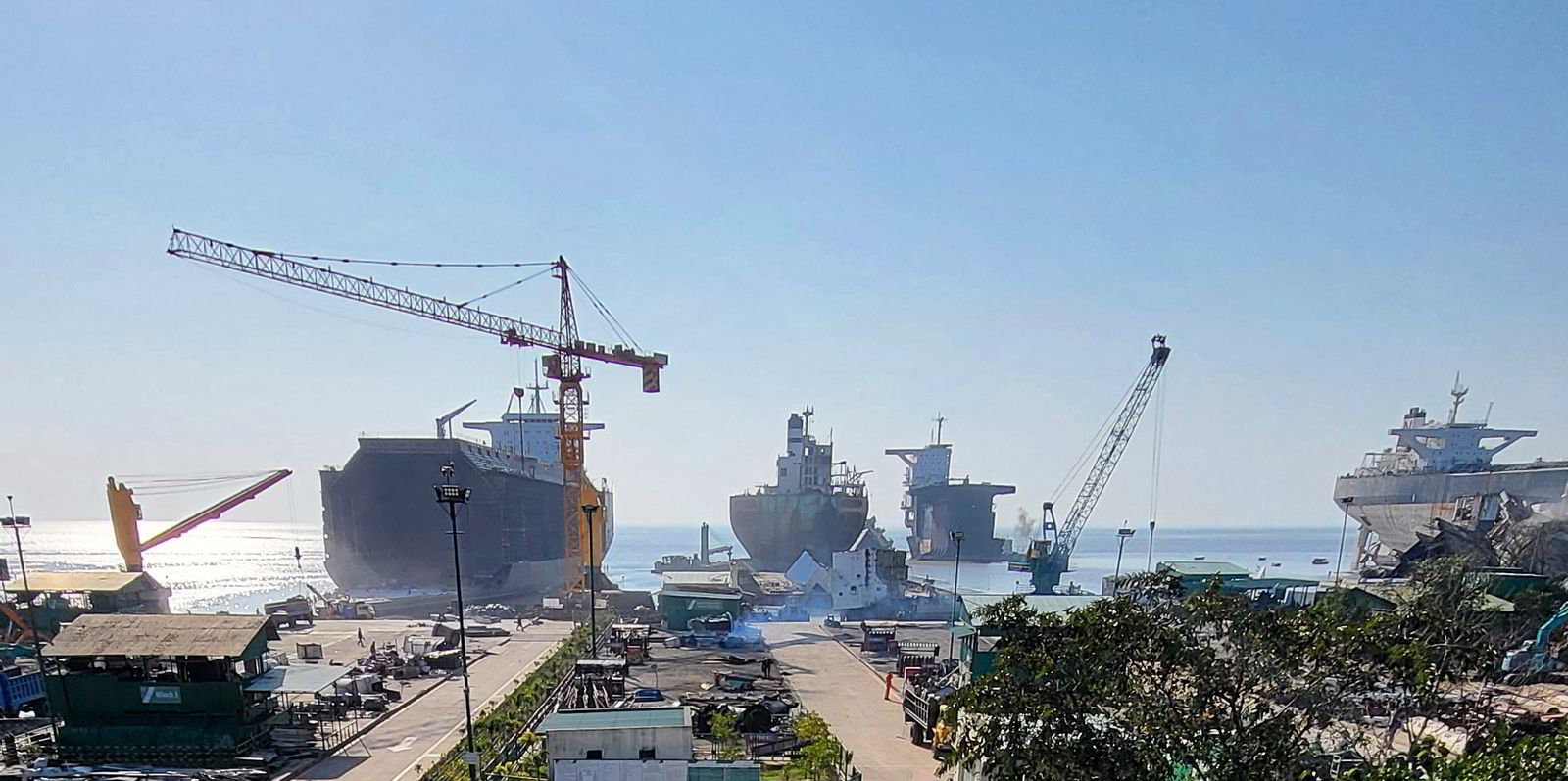Norway’s Stolt Tankers is selling its explosion-ravaged chemical tanker Stolt Groenland for scrap in South Korea.
The Stolt-Nielsen company said in a statement that the cost of repairing the 43,500-dwt vessel (built 2009) outstrips its value.
The Stolt Groenland was hit by a huge blast and subsequent fire in Ulsan, South Korea, in September 2019.
The ship has remained there ever since.
Brokers had reported a demolition deal for the ship had been concluded with a cash buyer, but with no details of price or a destination.
One source said it had been intended that the tanker head for green demolition in China, but this was not possible due to the damage sustained.
Stolt Tankers said that after the decision was taken to end the vessel’s life cycle, arrangements have been put in place to sell it to an “accredited local company”.
“The vessel is certified gas-free and confirmed clean from cargo, fuel oil and waste, all in accordance with requirements of international conventions,” the owner added.
The South Korean breaker will proceed with the safe and environmental friendly recycling of the vessel when approvals have been granted by relevant local authorities, the company said.
“Stolt Tankers are totally committed to safe and environmentally friendly shipping operations and are working with all the appropriate authorities and specialist organisations to ensure this policy is strictly followed,” the owner added.
Processes improved
In 2021, Stolt Tankers said it had improved its chemical cargo-handling processes after it was criticised in a report into the “catastrophic” explosion.
The incident injured two seafarers and 15 shore workers.
The UK Marine Accident Investigation Branch (MAIB) said a cargo tank containing styrene monomer ruptured due to runaway polymerisation, a chain reaction in which molecules bond together.
This breach released a large quantity of vapour into the atmosphere, which subsequently ignited.
The gangway watchman was blown over the guardrails on the main deck.
A colleague held on to a rail, but was soon forced to let go due to the heat from the fire. He fell into the water between the quay and the vessel, but was able to climb over a fender and on to the quay.
Huge operation
Firefighting efforts took more than six hours and involved more than 700 personnel and 117 units of fire trucks, pumps and fire tugs.
The MAIB found that the styrene monomer was affected by other heated cargo tanks.
The temperature had not been monitored, it said.
The elevated temperature due to other cargoes caused the inhibitor — added to prevent the chemical’s polymerisation during the voyage — to deplete more rapidly than expected.
“Although the styrene monomer had not been stowed directly adjacent to heated cargo, the potential for heat transfer through intermediate tanks was not fully appreciated or assessed,” the MAIB said.
In 2020, Stolt-Nielsen denied that the Stolt Groenland had been written off and its next voyage would be to the demolition yard.




